Special Education Assignment: 6-Week Literacy Unit Plan and Strategies
VerifiedAdded on 2023/03/31
|5
|685
|470
Homework Assignment
AI Summary
This homework assignment focuses on special education, specifically addressing literacy unit planning for upper elementary students. The assignment details a 6-week literacy unit plan aligned with CCSS standards (RL 5.1-RL 5.6), outlining skills to be presented, teaching strategies (group activities, creative writing, personal responses), and methods for measuring student progress (homework assessments, questioning, portfolios, tests). Additionally, the assignment explores teaching mathematics, designing key ideas, and incorporating research-based education. The assignment also covers investigating behavior triggers, staff responses, consulting skills, and data collection methods to improve and reduce behavior problems. References to academic sources support the solutions provided.
1 out of 5
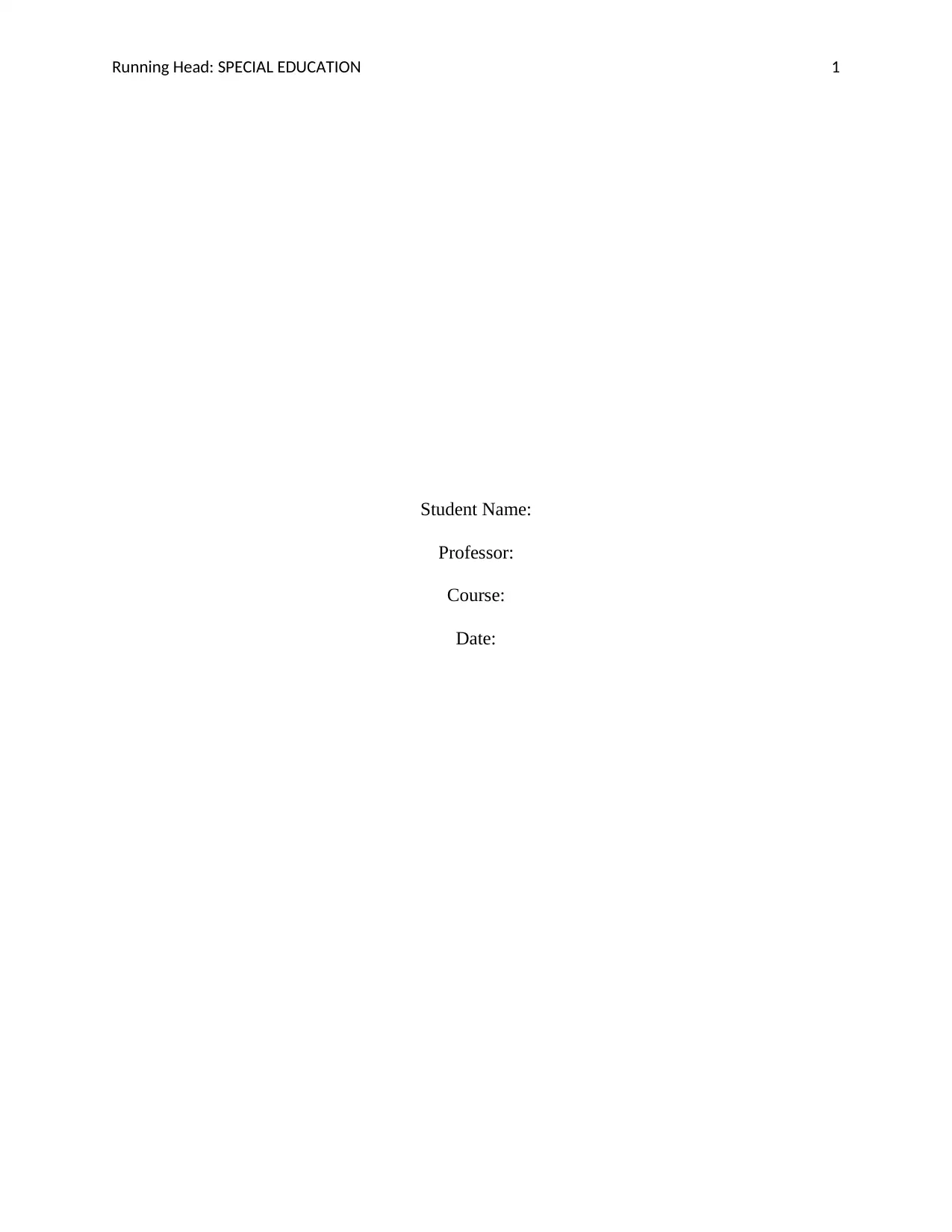
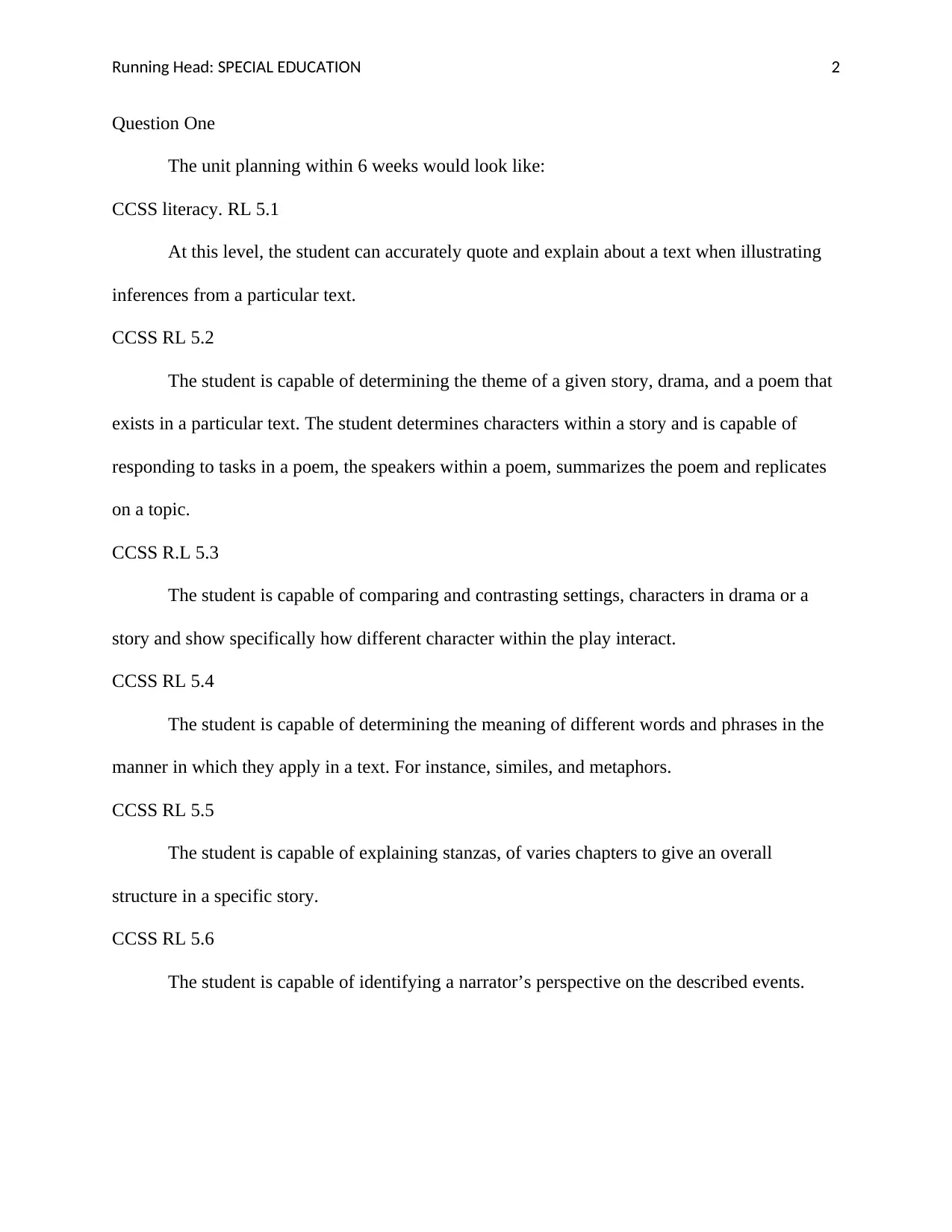
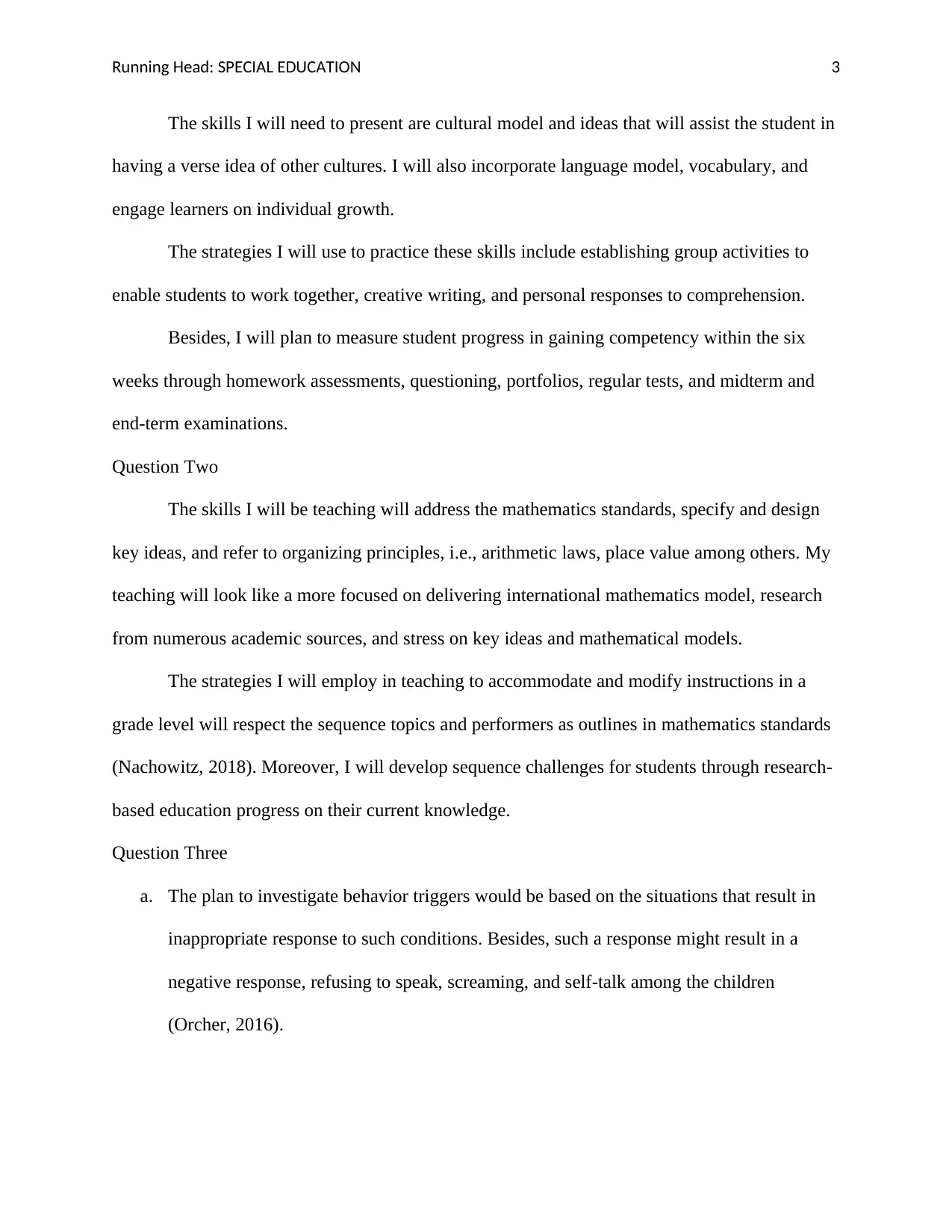

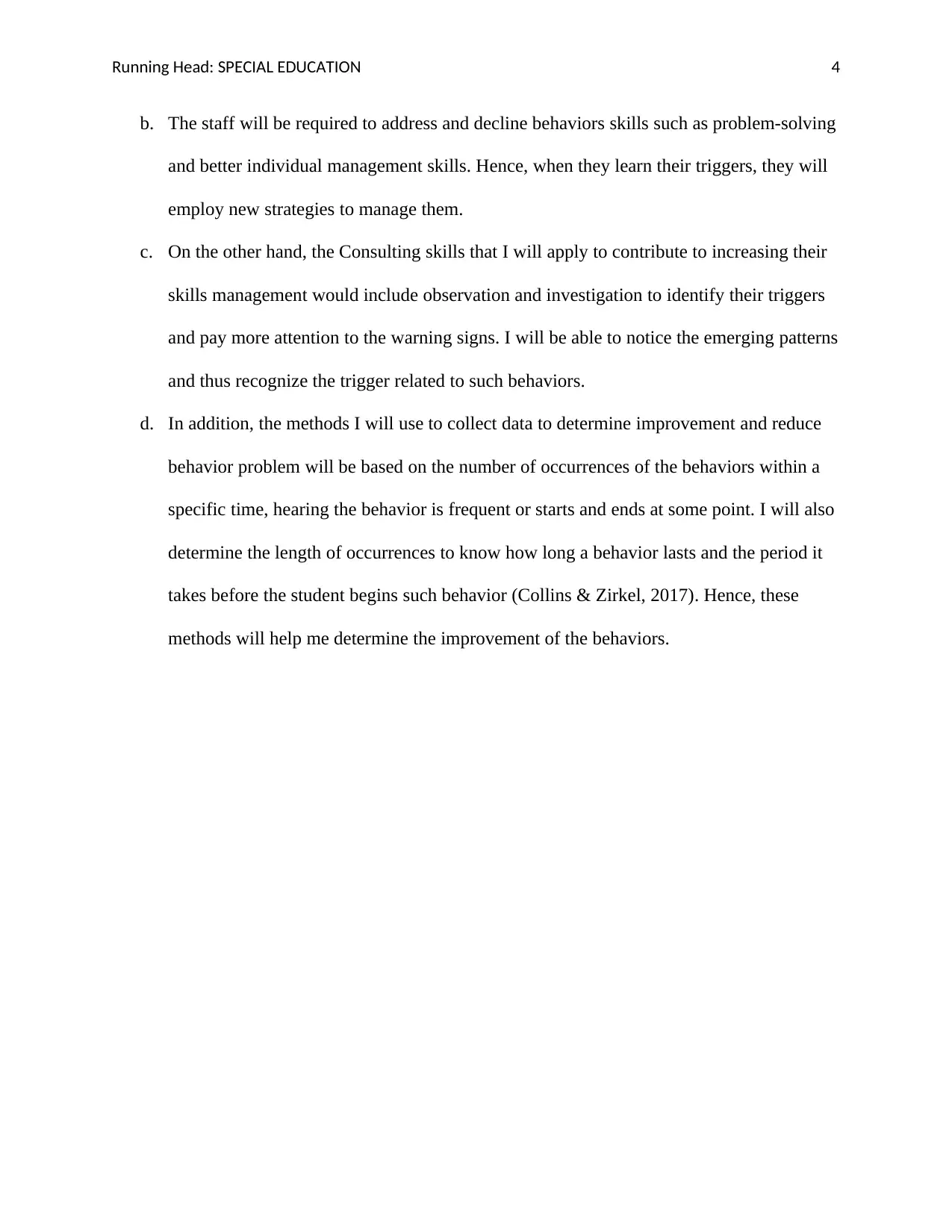
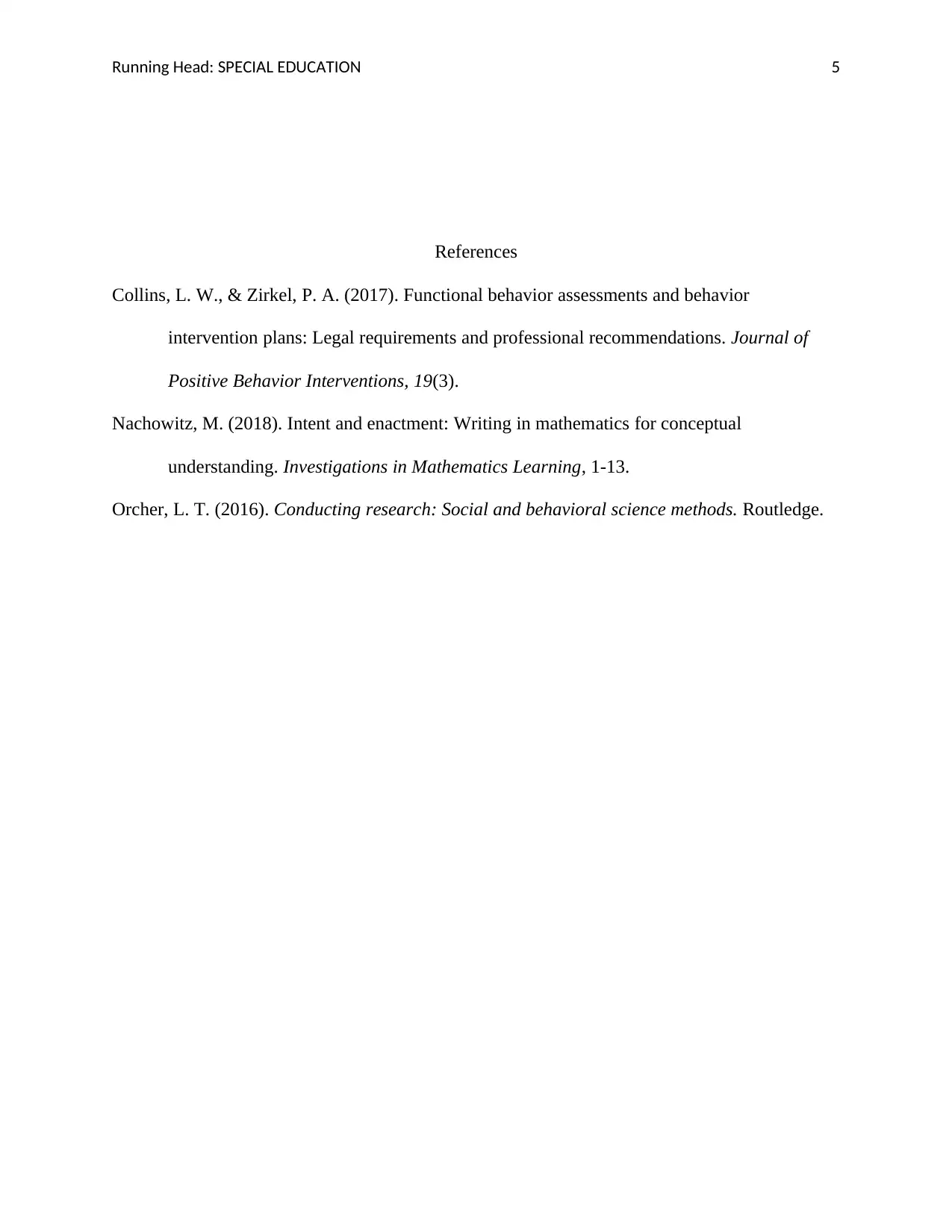


![[object Object]](/_next/static/media/star-bottom.7253800d.svg)